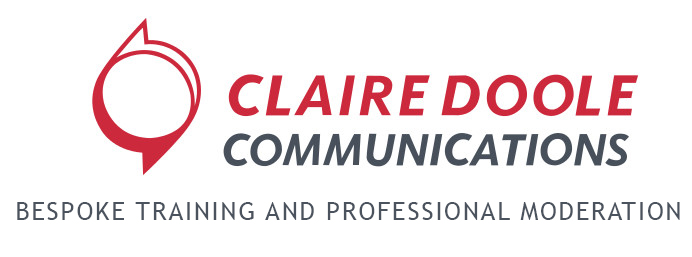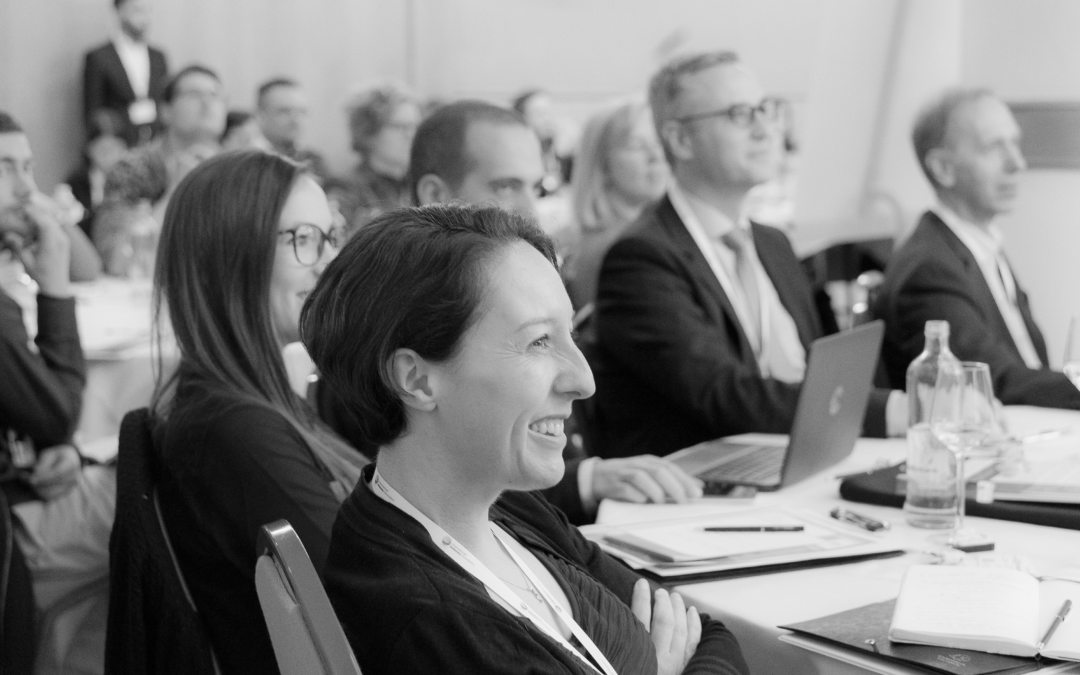
by Claire Doole | Mar 4, 2025 | Blog, Organising events
“Organising an event can be a lot of work for little return” is increasingly the refrain I hear from communication and marketing teams.
They take up a lot of time and resources to prepare and publicise but fail to attract commensurate audiences.
For some, there are just too many side events in competition with each other for audiences and even for speakers. This was certainly the case at the World Economic Forum in Davos this year, and at the AI summit in Paris – where I am told some events attracted as few as 15 attendees.
In Europe budgets are tight, and cuts in US funding are making international and non-governmental organisations reassess their priorities.
Some events previously considered a nice to have but not essential may now be shelved. Others, such as annual congresses, assemblies or UN World Days marking the goals of the organisation, may have to statutorily go ahead.
So how do you get more bang for your buck in these economically challenging times?
This month I was asked to give a talk in London to members of the Global Communications Development Network about the secret of engaging events.
Below are some observations/pointers from the roundtable hosted at the European Bank of Reconstruction and Development.
• Think like a TV or radio producer when selecting your panel topic—make it timely and audience-focused. Identify key questions first, then reach out to potential speakers to assess their fit. Frame it as an initial inquiry, emphasizing that the final lineup will ensure diverse perspectives, geographies, and genders.
• Select high quality speakers well in advance. If you leave it to a few weeks beforehand you tend to get panels built around what people know about rather than what the audience wants them to talk about.
• Cast the panel to ensure different opinions and views. Many of the organizations I moderate for tell me that they want a lively “BBC style debate” but invite only people who say the same thing. The moderator at this point has no option but to play devil’s advocate.
• Have a few in-depth interviews – the so-called fireside chat – with a key speaker can be far more productive than organising a panel that as mentioned above requires a lot of editorial thought and advance planning.
• Choose a moderator who rigorously prepares. Insist that all moderators whether in-house or external hold briefing calls with the speakers.
• Entertain your audience as well as inform and educate them. Make sure your programme is varied and appeals to as many senses as possible – sight, hearing, smell, taste and touch.
• Pick a date that doesn’t conflict with other major events in the calendar. It is unwise for example to hold an event linked to climate change at the same time as the annual Conference of the Parties (COP) to the Climate Change Convention as audiences and relevant speakers may not be available.
In these economically challenging times, many organisations are not holding events themselves, but joining forces with others – as a way of keeping costs down and also attracting a potentially bigger audience!
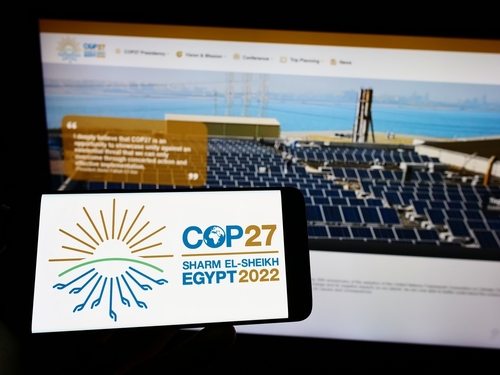
by Claire Doole | Jan 15, 2023 | Blog, Organising events
The head of an organization that last year ran more than 100 panel discussions asked me that question recently. By the way, if you think 100 is a lot, the organization had topped 150 panel discussions in 2020/21!
We all understand the quest for visibility, but sometimes less is more. The organization in question understood this when at COP 27 in Sharm El Sheikh last November it had to cancel a panel discussion – one of 15 it was organizing – due to a lack of audience.
Lack of audience
I was told by friends who attended COP 27 that there was marquee after marquee, side event after side event, but many of them were not full. One private company held a panel discussion at which only three people turned up.
This, I would argue, was an event that should have been cancelled, as it is not good for the organiser’s reputation, brings little benefit to the speakers, and is an uncomfortable experience for the audience.
Ironically, this is more likely to happen at big events like COP as there is more competition for attendees. This is having a knock-on impact on panelists in that they are being asked to speak at too many events, and there is not always enough of them to go around. Another international organization fielded requests from 80 side-event organizers for speakers – many of which they could not accept as they didn’t have that number of speakers available.
Lack of speakers
It can be challenging, particularly when organizing week-long events on a specific subject, to find enough speakers as there are sometimes only so many specialists. Organizers then turn to their B and C lists, which means speakers who are not so well-informed and are limited to the points they can or want to talk about.
In the past, speakers have grabbed the opportunity to be on a panel, whether for visibility or vanity, but organisers are reporting a new trend – the great panelist pullout. Panelists are either pulling out – often at the last minute – due to other commitments, suffer from panelist fatigue or because they see the low audience figures registered.
Countering the “cancel culture”
In the competitive world of events, organizers have to design and deliver an event that draws in audiences. Rather than limiting their thinking to speakers or subject, they need, for strategic reasons; to be more audience-centric – what is in it for the audience.
This means designing an event that first considers who are potential audience members and will the subject or theme capture their interest, either through possibly delivering best practices, offering new insights or helping them understand better the issues at stake.
After thinking first about how you will inspire or instruct the audience on topical issues, the next critical step is the casting – speaker selection. What are the criteria for choosing an effective speaker?
My question is always, what does a selected speaker bring to the discussion? Are they good communicators? How will the panelists interact with one another? This means that organisers need ideally to start the process of speaker selection a month to six weeks before the event, rather than leave it to the last moment.
Once you have your speakers, you need to explain to them why they are being invited and the questions they will be asked.
Similarly, organizers should not bring in the moderator in the final stages, but use their expertise in establishing the editorial flow for an engaging discussion even before contacting potential speakers. Many professional moderators are former or current broadcast journalists and know not only how to generate but also design a discussion that is productive and insightful for the audience.
I have reviewed these steps in more depth in previous blogs, but are worth recalling as we look at the weak links in panel organization.
In conclusion and to answer my friend’s question, you will be less likely to be put in the difficult situation of cancelling a panel discussion if it is well thought out, with the right speakers on the right subject at the right time.
Let’s hope in 2023 organizers don’t even have to consider cancelling a panel as they have realized the importance of quality over quantity!
Other blogs to read on organising events:
https://www.doolecommunications.com/successful-virtual-events-are-good-television/
https://www.doolecommunications.com/professionally-producing-virtual-events/
https://www.doolecommunications.com/has-there-been-an-event-reset-since-covid/
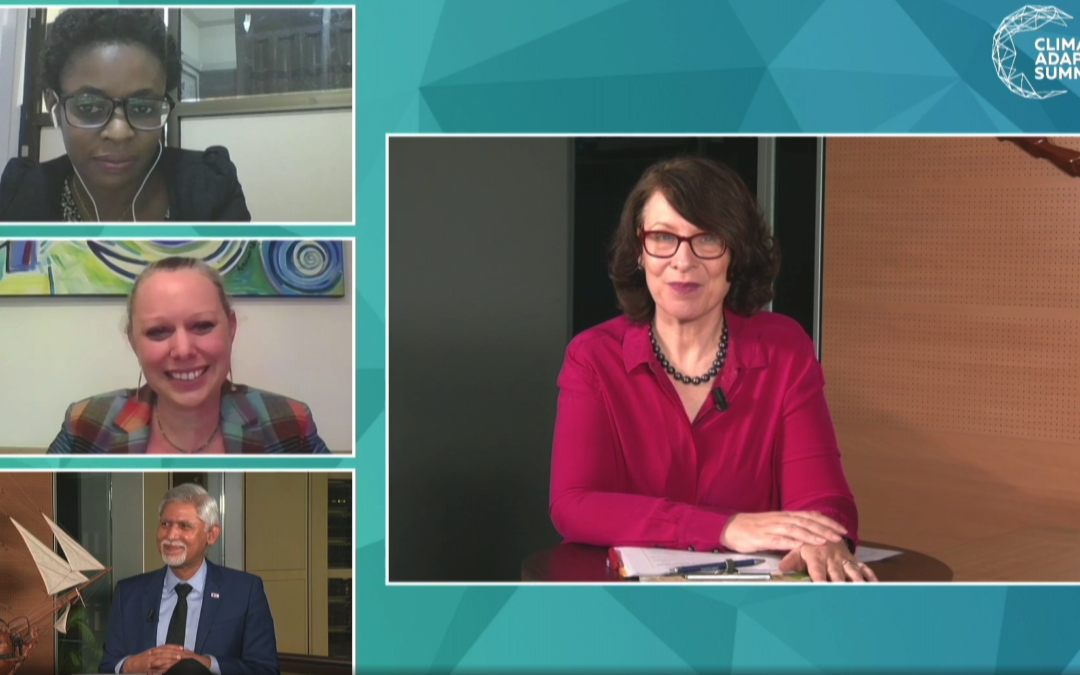
by Claire Doole | Feb 28, 2021 | Blog, Organising events
What is the biggest challenge when organising a virtual event? Technical glitches are high up on the list when I ask this question in my workshop on organising engaging virtual events.
A year on since the pandemic first hit, we are still challenged and aggravated by poor video and sound quality, speakers that fail to connect and lack of time management. At one event I moderated, so many outside lines went down I ended up talking at length to the one guest I fortunately had in the studio. If he hadn’t been with me, we would have just had to go on a break and come back once we reconnected with our speakers.
So, how do you organise a technically glitch free event?
Pre-recordings
I recently moderated the Global Vaccine Immunization and Research Forum (GVIRF) – an event spanning three days over two continents – where all the speakers were pre-recorded. They or proxies were brought back live to answer audience and moderator questions.
If you do pre-record, speakers must keep to time. If you are pre-recording a panel discussion or interview, it must be done “as live” so that it is kept to time. If you go over, you will have to cut something else later in the programme.
Broadcasters give themselves flexibility, editing short and longer versions.
Time management
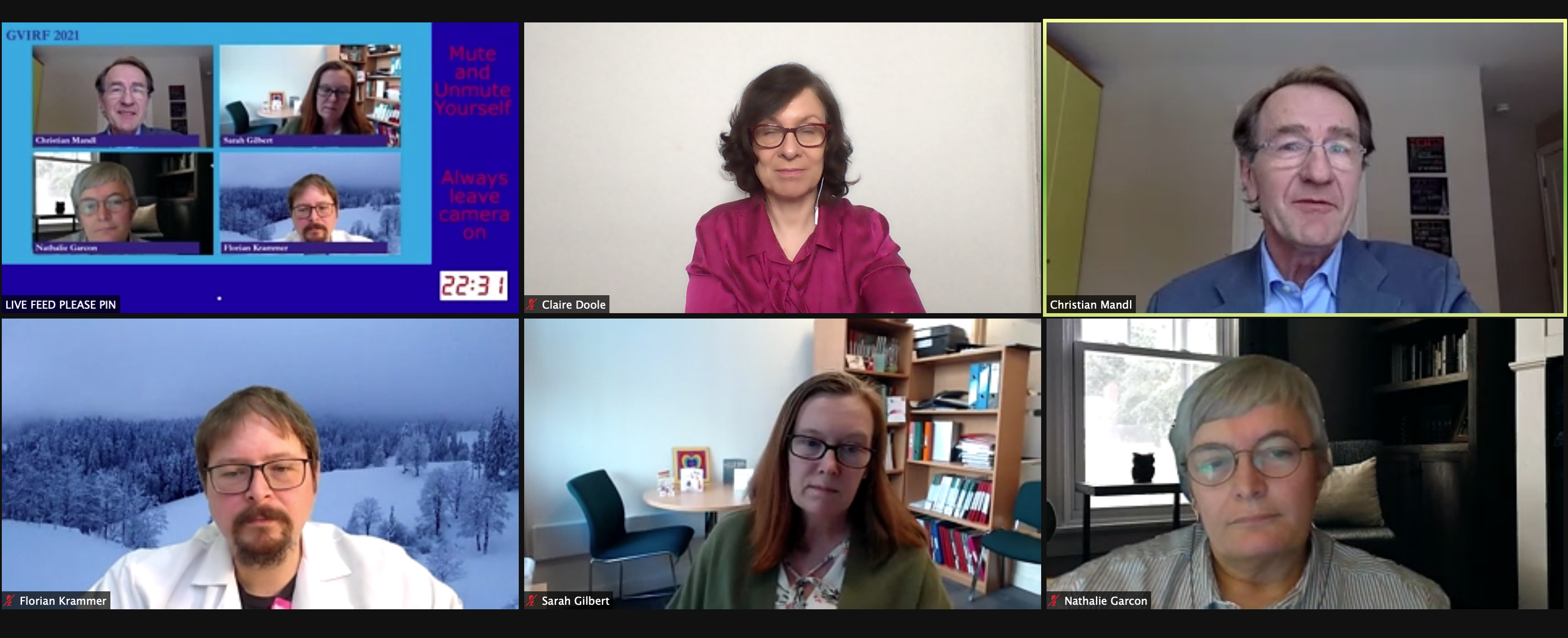
On some platforms, like VMIX, you can integrate a countdown clock so that speakers and the audience see how long is left. At the GVIRF, all of the panel moderators kept to the time that was set.
MC talk back
One of the main jobs of a Master of Ceremonies (MC) is to seamlessly link from one part of the show to the next. It helps if they get a countdown in their earpiece from a studio producer so they know how long is left in a discussion, presentation, pre-recording, video or jingle before they have to speak. At the GVIRF, I downloaded a fantastic mobile phone application called unity comms. I connected with my headphones and could hear the studio producer and talk back to him.
Studio and virtual producers
If you want a seamless and smooth event you need a producer either with you in the studio or in the moderator’s ear virtually.
At one hybrid event I moderated, the producer was in the UK while the event was in Geneva – so I ended up moderating and being the floor manager – guiding guests in and out of the recording area and giving them instructions on what camera to look into. And of course, we had the added complication of social distancing!
Virtual event companies
If you are going to stage an event of more than an hour, you need to have great in-house audiovisual support or engage a virtual event company.
Many events companies have had no option but to work virtually. However, there is a big difference between a company that knows how to do the technical set up in a hotel or conference center and one that understands how to produce virtual events like a TV programme.
At the GVIRF, I worked with Go Vivace an events company in the UK that employs people from the worlds of theatre and broadcasting. Needless to say, the event was as smooth as a BBC programme or a West End production!
Technical rehearsals
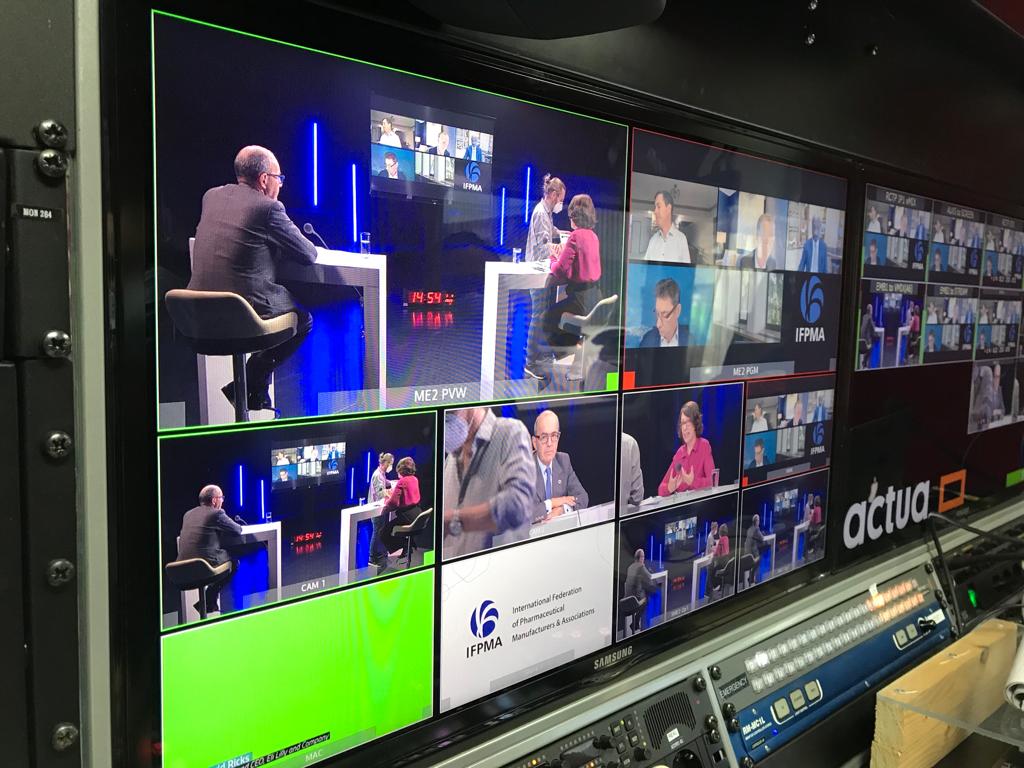
Technical rehearsals with each speaker is required – do not try to cut corners on the budget on this step. It is crucial to check speakers’ background, lighting, and sound before the event.
Also make sure speakers are familiar with the platform – know how to unmute themselves and on some platforms know how to pin themselves to the live broadcast. It is best if they keep their cameras on as if they turn them off the organisers and moderator can easily think they have lost connection.
Even the CEOs of big pharma at the briefings I moderate on COVID 19 vaccines and treatments for IFPMA gave us 15 minutes of their precious time for the technical set up.
Professional moderation
I would say this as a professional panel moderator and conference MC, but you do need someone who can keep calm and carry on whatever technical issues occur.
At a recent event recorded in a client’s office, we lost connection right at the end, between two high-level speakers. Fortunately, the quick-thinking producer switched between one computer and another so we managed to finish the programme smoothly – and on time!
Of course, the real role of an MC is to drive the narrative, connect the dots and energise and interact with the audience – more on that in next months blog!
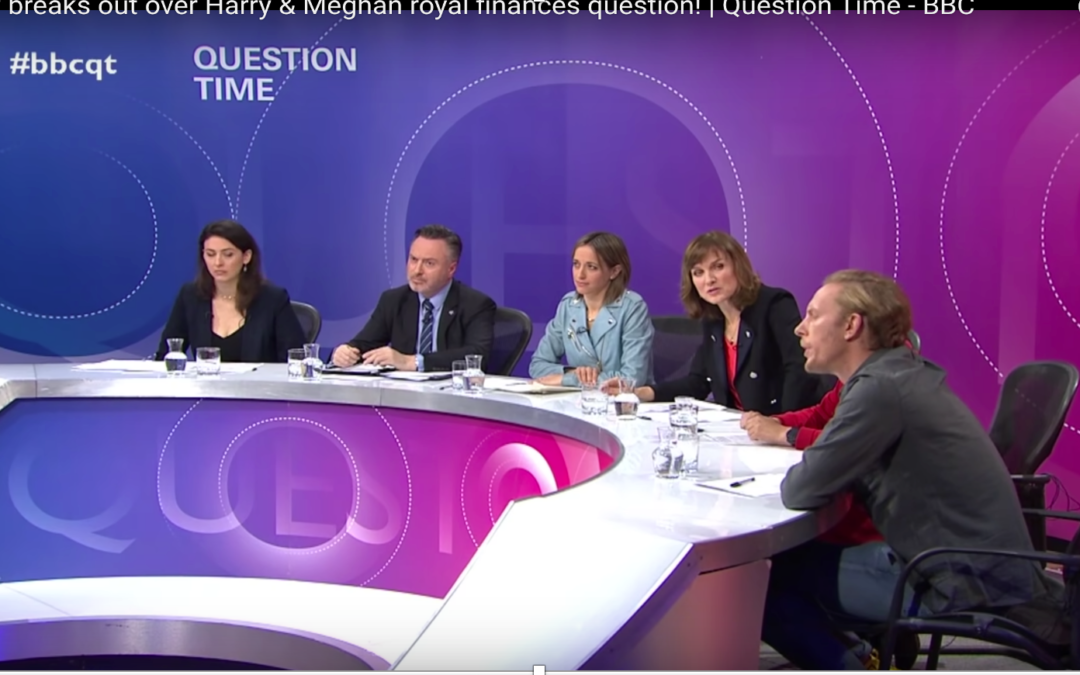
by Claire Doole | Sep 14, 2020 | Blog, Organising events
Are you getting bored of virtual events which go on for hours, with one speaker after another or one panel after another? Often the most gripping moment is seeing how the moderator copes with the technical glitches or closes down the speakers who go over time!
Far too many event organisers have not understood the difference between what goes into a virtual one as opposed to face-to-face. They try to replicate their usual half-day, full-day or two-day event online without thinking about the audience experience.
Having moderated many virtual events in the past 7 months, I firmly believe that organisers will need to work harder as the pandemic continues to retain audience share. Audiences are going to be more selective, only tuning in to events that are well produced, informative and insightful.
Producing a virtual event is like producing a TV programme
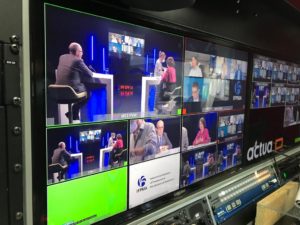
As a former BBC TV producer and editor, I advise clients organising events to use the same techniques that professional programme producers use to attract and retain audiences. Here are some of my tips:
• Short – TV programmes are rarely more than 60-minutes. Often, they are 30 to 45 minutes as producers know that people’s attention span starts to wane without a break.
• Varied – Our brains switch off if they are not stimulated every 8 minutes. A TV programme is broken down into short varied segments – presenter intro/interview with a participant, known as a “fireside chat”/double-headed interviews/studio discussions. Schedulers make sure that the same format is not used in consecutive TV programmes. A documentary is followed by drama that is followed by light entertainment or reality TV.
• Creative – Programme makers experiment with new formats, ensuring a mix of light and shade to keep people’s attention. Even in TV news there is a mix of serious and less serious stories.
• Human-interest – People are interested in people. Programme makers are looking for stories of the challenges people face and how they are overcoming them. They know that stories build emotional connection and keep people captivated.
• Pre-recorded – Most TV is pre-recorded. News programmes are live as well as some sports events and of course, election night special. But these are produced by teams who regularly work together and are at the top of their game!
• Rehearsed – Live TV programmes are rehearsed – just like music concerts or theatrical productions. Presenters make it look as if it is happening naturally but programmes have a minute-by-minute running order that is rigorously adhered to.
• Time-managed. A TV or radio programme never over-runs due to the skill of the studio producer and presenter.
Applying these tips to your virtual event
If you are organising an event that is longer than 1 hour, here are some tips to keep your audience engaged. You could offer breakout rooms where the audience can continue the conversation with the speakers, as well as content on demand such as videos, podcasts or in-depth written content.
When you go beyond an hour, as an organiser you need to ensure a variety of formats from panel discussions with different formats, interviews, keynotes, and facilitated breakout sessions.
Fundamentals of a good virtual event
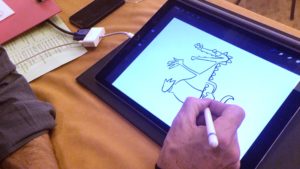
Don’t forget that the basis for any successful event is to be creative in structure and format. Inform, educate and entertain are the essential ingredients of all good events, so when preparing your virtual one, make sure you appeal to all of the senses – visual (video, images, cartoons) audio (recordings, music) and kinesthetic (icebreaker activities, quizzes, energisers, storytelling).
If you would like to know more, do contact me about my virtual workshops on organising memorable virtual events. I also run workshops on engaging online presenting, storytelling and moderating.

